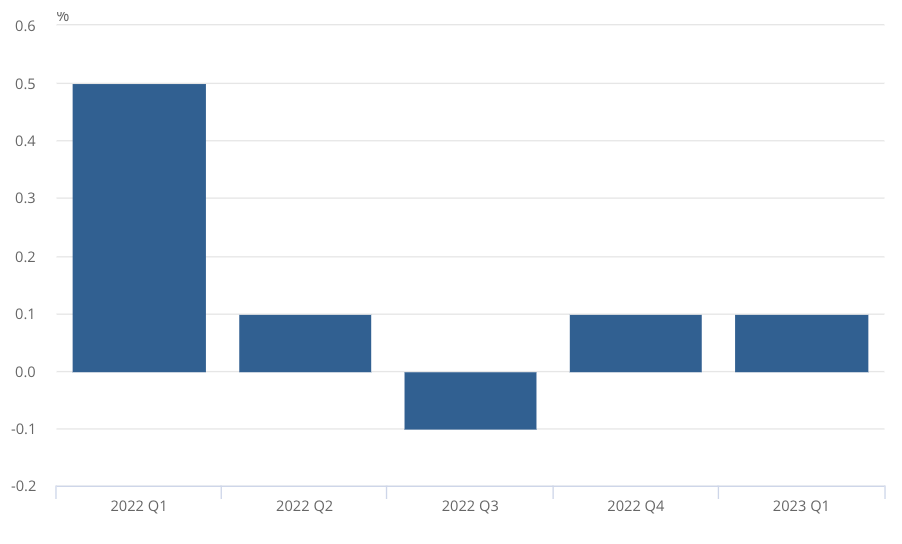UK on track to dodge recession as economy grows 0.1 per cent in first quarter

Britain is on course to officially dodge a technical recession in the first half of this year, demonstrating the big turnaround in the country’s economic fortunes in just a handful of months, figures out today show.
Gross domestic product (GDP) – which measures all goods and services made in an economy – edged 0.1 per cent higher in the three months to March, the Office for National Statistics (ONS) found.
The number was in line with the City’s expectations, although the more timelier monthly figure shows the UK economy is still fragile.
March GDP contracted 0.3 per cent, mainly driven by families slashing spending on services, which generates about £2 in every £3 of Britain’s output.
Analysts had expected output to stagnate in March.
Today’s numbers illustrate the UK’s economic performance has recovered quickly since the turn of the year.
Experts at that time had been warning the country was on track to suffer the longest recession in a century, wiping about three per cent off of GDP, starting at the beginning of 2023.
Quarterly UK GDP growth is still pretty weak

However, a sharp reduction in energy prices, low unemployment and government support has fortified households and businesses, keeping spending and investment afloat.
Chancellor Jeremy Hunt said the government will focus “on competitive taxes, labour supply and productivity” in order to maintain and boost future growth.
Yesterday, the Bank of England ditched any threat of recession in new forecasts in what was the biggest GDP upgrade since the central bank was made independent in 1997.
In November, Bank Governor Andrew Bailey and the rest of the monetary policy committee had projected 15 back-to-back months of negative GDP growth. An around additional two per cent was lobbed onto output over the forecast horizon.
The Bank of England also yesterday raised interest rates for the twelfth time in a row, up 25 basis points to 4.5 per cent, a near 15 year high.
“While recession is probably no longer on the cards, vulnerabilities resulting from higher borrowing costs and tighter credit are likely to dampen business and household activity this year, with both business investment and consumer spending expected to remain subdued in the near term,” Yael Selfin, chief economist at KPMG UK, said.
“Despite the positive growth figure for the first quarter, it needs to be put into perspective given the lukewarm momentum ahead,” she added.